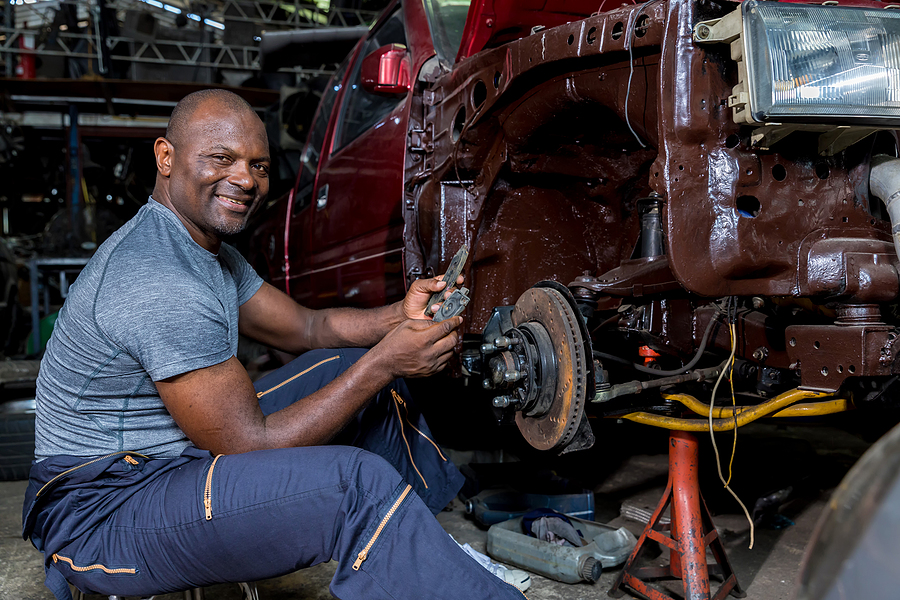Are you looking for ways to keep your car’s brakes in good condition? If so, you’ve come to the right place! Proper brake maintenance is essential for safe driving and avoiding costly repairs. Here are 10 tips to help you keep your brakes in top shape throughout the year. From regular inspections and fluid changes to checking brake pads and rotors, these easy-to-follow steps will ensure that your vehicle has reliable braking power whenever you need it.
So, read on for some useful advice about keeping your brakes in great condition!

Top 10 Ways to Take Good Care of Your Car Brakes
1. Get Regular Brake Inspections: An easy way to make sure your brakes are in good condition is to have them regularly inspected by a mechanic or technician. A qualified professional will be able to detect any potential problems with your brakes before they become serious and expensive repairs.
2. Change Your Brake Fluid: Changing your brake fluid regularly is one of the most important maintenance steps you can take. Brake fluid absorbs moisture over time, which makes it less effective at stopping your car. Be sure to keep up with this simple but important step for optimal brake performance.
3. Check Your Brake Pads: Another important part of maintaining your brakes is to check the brake pads. If they become too worn, it’s time to replace them. This will help reduce friction and wear on your rotors, which can save you money in the long run.
4. Check Your Rotors: The rotors are what allow your car’s brakes to stop quickly and effectively. Over time, the rotors can become warped or damaged due to wear and tear. If this happens, it’s important to have them replaced as soon as possible to avoid any costly repairs down the line.
5. Clean Your Brakes: Regularly cleaning your brakes will help keep them in good condition by removing dirt, dust, and other debris that can build up over time. This simple step will ensure your brakes are always working their best.
6. Check for Leaks: Checking for leaks in your brake lines is essential to maintaining optimal brake performance. If any leaks are detected, they should be repaired immediately to avoid any further damage or costly repairs.
7. Check for Vibrations: If you feel any vibrations or pulsing when applying your brakes, it could be a sign that something is wrong. This could be caused by worn brake pads, warped rotors, or loose parts. Have a mechanic inspect your brakes if this happens to ensure everything is in good condition.
8. Avoid Sudden Stops: It’s important to avoid making sudden stops in order to protect your brakes from excessive wear and tear. Make sure to give yourself plenty of distance between you and the car in front of you so you can brake gradually when needed.
9. Don’t Drag Your Brakes: Dragging your brakes can cause unnecessary wear and tear. This happens when you keep your foot on the brake pedal after slowing down to a certain speed, instead of releasing it completely. Make sure to take your foot off the brake when you’re not applying pressure in order to avoid any premature damage.
10. Don’t Ignore Warning Signs: If your car is making any strange noises or behaving oddly when you apply the brakes, it’s time to get them checked. Ignoring warning signs can lead to more serious problems in the future, so be sure to take your car in for a brake inspection at the first sign of trouble.
Good Brake Care Will Ensure Safer and More Enjoyable Driving
Following these tips can help keep your brakes in optimal condition, allowing you to enjoy worry-free driving and avoid costly repairs. Be sure to stay on top of brake maintenance so that you can feel confident your car will respond when you need it to. Speak with a licensed auto mechanic for personalized advice about car maintenance.
Are you looking for a dependable automotive mechanic for help with your car or truck issues? Contact Northeast Auto Service at 317-475-1846 for professional brake repair and automotive service and repair in Indianapolis, Indiana. Request a free estimate, or schedule service, today.
Related Posts:
3 Auto Care Services to Ensure Brake Performance and Longevity
Why Did My Brake Warning Light Come On in My Car?
How to Use Engine Braking to Extend the Life of Car Brakes
